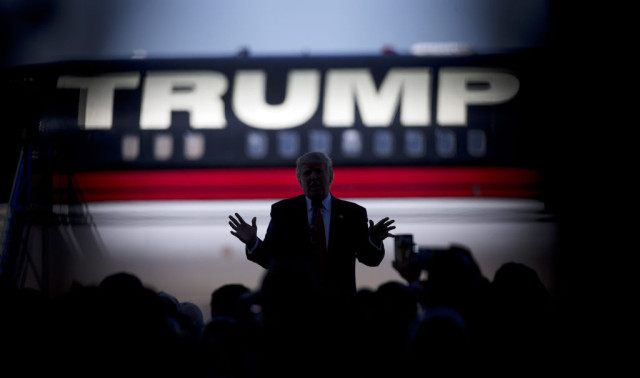Donald Trump said Sunday that his “floor” economic concern as President would be negotiating a sizable middle class tax cut, “because they have been absolutely shunned.”
Despite a barrage of accusations from NBC News Meet the Press anchor Chuck Todd, complaining about inconsistencies in Trump’s policy, Trump continued to refer to the tax cut proposals he laid out in September that would simplify the IRS code with four key promises:
- “Tax relief for middle class Americans: In order to achieve the American dream, let people keep more money in their pockets and increase after-tax wages.
- Simplify the tax code to reduce the headaches Americans face in preparing their taxes and let everyone keep more of their money.
- Grow the American economy by discouraging corporate inversions, adding a huge number of new jobs, and making America globally competitive again.
- Doesn’t add to our debt and deficit, which are already too large.”
Trump acknowledged that he will have to negotiate with Congress, but didn’t back off of his tax bracket simplification pledge that would exempt 50 percent, or 75 million, of American households from owing any income tax — i.e. for a single person making under $25,000, and married and jointly filing persons earning less than $50,000..
On a televised interview from Washington State, where he is campaigning, Trump was pressed by Todd on his supposedly “evolving” positions. Trump said lowering taxes on businesses and the wealthy were starting points for negotiation. But when it comes to a middle class tax cuts, “I have to negotiate now with senators and congressmen.” He emphasized during the interview, “It really is a floor.”
Later on ABC’s This Week with George Stephanopoulos, Trump admitted that “by the time it gets negotiated, it’s going to be a different plan.” He again promised he would “make sure the middle class gets good tax breaks,” but he suggested that political realities may make cuts for the rich harder to deliver. “When it comes time to negotiate, I feel less concerned with the rich than I do with the middle class.”
Trump’s original tax plan offered large reductions in stated income and corporate tax brackets, but his wiping out of the highly politicized personal and corporate exemptions and deductions would tend to push the actual net tax payments for many of the “1 percenters” and huge multi-national corporations higher.
“For the wealthy, I think, frankly, it’s going to go up,” Trump told Meet the Press. He did not specify whether that meant from current levels, or from the rates included in his 2015 plan — though he told ABC that “on my plan they’re going down. But by the time it’s negotiated, they’ll go up.”
Trump has dominated the media by attacking the financial bubble and big government status quo as being on their last legs. He constantly warns about an impending recession, a market crash, explosion of deficit projections and double-digit increases in next year’s health insurance premiums and co-pays.
His recent suggestion that he would not eliminate the national debt, and might even renegotiate it, drove the media and the Republican party officials bonkers. Despite the opinions of these elites, Republican and independent primary voters have bought into his ability as a businessman to make deals, rather than adhering to establishment orthodoxy.
Comments on the highly influential Sunday news hour shows suggest Trump is following his 11-step formula for business success he that outlined in his 1987 book, Art of the Deal. Having thought “big enough” to win the nomination, Trump is now using his “leverage” to offer an olive branch to work with the Republican-dominated Congress to “protect his downside” and “maximize his options.”
In staying true to voters that have been hit by economic stagnation, Trump said, “I don’t know how people make it on $7.25 an hour.” But in deference to state and local control, Trump commented, “But I’d rather leave it to the states. Let the states decide.”

COMMENTS
Please let us know if you're having issues with commenting.